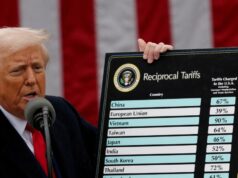Seema Sirohi, a Washington-based journalist and columnist for The Economic Times, delves into the international media’s coverage of India’s recent Lok Sabha election results. She offers a nuanced analysis, pointing out that much of the pre-election coverage was predominantly negative, focusing on the opposition’s challenges, including the arrests of key figures like Arvind Kejriwal and Rahul Gandhi, and the freezing of Congress party funds. This narrative questioned the state of Indian democracy, suggesting it was under stress.
Seema Sirohi also highlights how major Western publications, such as The New York Times, frequently featured negative perspectives from South Asian studies academics. These narratives persisted even after the results were declared, emphasizing that the BJP failed to meet its seat projections, thereby portraying Prime Minister Narendra Modi as having lost his invincible image and receiving a voter rebuke. The media coverage suggested Modi had been humbled, with his political dominance seemingly cracked.
The interview also touches on the dichotomy in media portrayals, noting how the Wall Street Journal provided a more balanced view. Unlike other Western outlets, it acknowledged Modi’s substantial support and the complexity of the electoral verdict, recognizing that development had indeed reached parts of the population.
Sirohi also examines the role of social media in shaping public opinion, comparing its influence in India and the United States. She observes that social media has become a crucial platform for political discourse in India, much like in the US, where mainstream media often misses undercurrents of public sentiment.
Furthermore, Seema Sirohi reflects on the broader implications for foreign policy and geopolitical dynamics, suggesting continuity in India’s external affairs despite the election outcomes. She underscores the resilience of Indian democracy and its capacity to surprise and defy expectations, emphasizing the importance of nuanced, unbiased journalism in capturing the complex realities of political landscapes.
Watch the full interview for a compelling exploration of media biases, democratic processes, and the evolving role of social media in modern politics.
Neelanjana Banerjee is a Broadcast Media Specialist with 23 years of cross-media experience in designing and producing content for television, radio and online media.
Having held a wide range of roles in various aspects of electronic media, she is a multifaceted professional and has an in-depth and hands on experience in broadcast
content, programming, media production, channel / product launch, TV and
radio skills training and online content.
Neelanjana was awarded the Chevening Gurukul fellowship in Leadership & Excellence from King's College, London in 2016.




